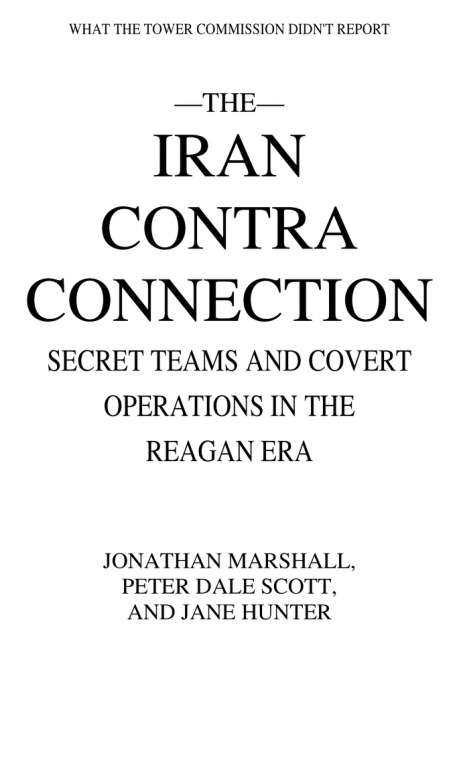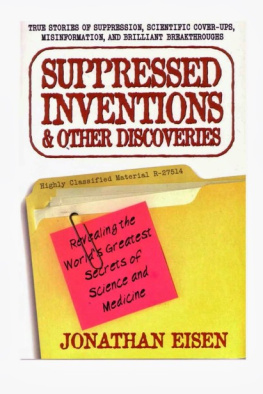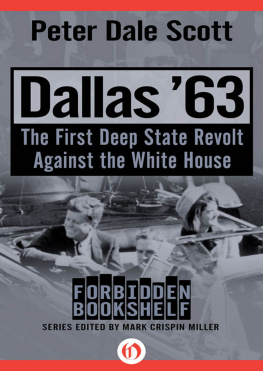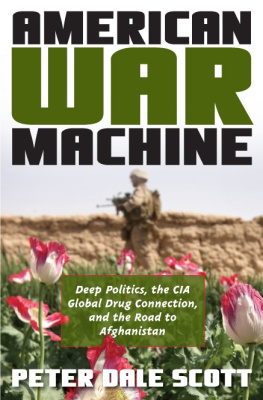Jonathan Marshall - The Iran-Contra Connection: Secret Teams and Covert Operations in Reagan Era
Here you can read online Jonathan Marshall - The Iran-Contra Connection: Secret Teams and Covert Operations in Reagan Era full text of the book (entire story) in english for free. Download pdf and epub, get meaning, cover and reviews about this ebook. year: 1987, publisher: South End Pr, genre: Politics. Description of the work, (preface) as well as reviews are available. Best literature library LitArk.com created for fans of good reading and offers a wide selection of genres:
Romance novel
Science fiction
Adventure
Detective
Science
History
Home and family
Prose
Art
Politics
Computer
Non-fiction
Religion
Business
Children
Humor
Choose a favorite category and find really read worthwhile books. Enjoy immersion in the world of imagination, feel the emotions of the characters or learn something new for yourself, make an fascinating discovery.

- Book:The Iran-Contra Connection: Secret Teams and Covert Operations in Reagan Era
- Author:
- Publisher:South End Pr
- Genre:
- Year:1987
- Rating:4 / 5
- Favourites:Add to favourites
- Your mark:
- 80
- 1
- 2
- 3
- 4
- 5
The Iran-Contra Connection: Secret Teams and Covert Operations in Reagan Era: summary, description and annotation
We offer to read an annotation, description, summary or preface (depends on what the author of the book "The Iran-Contra Connection: Secret Teams and Covert Operations in Reagan Era" wrote himself). If you haven't found the necessary information about the book — write in the comments, we will try to find it.
Jonathan Marshall: author's other books
Who wrote The Iran-Contra Connection: Secret Teams and Covert Operations in Reagan Era? Find out the surname, the name of the author of the book and a list of all author's works by series.
The Iran-Contra Connection: Secret Teams and Covert Operations in Reagan Era — read online for free the complete book (whole text) full work
Below is the text of the book, divided by pages. System saving the place of the last page read, allows you to conveniently read the book "The Iran-Contra Connection: Secret Teams and Covert Operations in Reagan Era" online for free, without having to search again every time where you left off. Put a bookmark, and you can go to the page where you finished reading at any time.
Font size:
Interval:
Bookmark:

This explosive book lays bare the full details of current events, exposing the personalities and institutional relations behind the headlines. It goes beyond the specific events of the recent period to discern the roots of contemporary U.S. covert activity in the history of the past two decades. It delves into the details of CIA and extra-CIA operations including drug-trafficking, gun-running, government-toppling, and assassination.
The authors argue that the Iran-Contra scandal is not merely a plan gone awry, but a consistent outgrowth of a long tradition of covert U.S. activities. From the Bay of Pigs invasion teams to the NSC organizational team; from the CIA and the World Anti-Communist League to the IsraeU connection and State Department; this is the fuU story, unfettered by concerns of "damage control."
"The Iran-Contra Connection" is as disturbing as "The Tower Report" is consoling. This extraordinary book narrates a frightening, shocking story that shakes the foundations of the repubUc.
^Richard Falk, from the Preface
Table of Contents
Acknowledgements vi
Preface by Richard Falk vii
The Origins of Contragate
I. Introduction 1
II. Contracting Out U.S. Foreign Policy 7
III. "Shadow Networks" and Their Stake in Covert Operations 19
IV. The Growth of Reagan's Contra Commitment 51
V. Israel and the Contras 83
Iran-Contragate: Its Nature and Prospects
VI. Contragate: The Disposal Problem 125
VII. Arms for Iran: History of a Pohcy Disaster 149 VCn. Irangate: The Israel Coimection 167
The Future of the Crisis
IX. Secret Wars and Special Operations 187
X. The Deeper Malady: From Terrorism to Covert Action 203
XI. Conclusion 227
Footnotes 234
Index 304
About the Authors 315
Acknowledgements
Some of the material in this book appeared earlier, in different form, in the Tribune (Oakland, CA), Pacific News Service, The Nation, Crime and Social Justice, and Israeli Foreign Affairs.
The authors would like to gratefully acknowledge Eric Bentley, Pete Carey, the Data Center (Oakland, CA), Paul L. Hoch, Ted Rubinstein, and Peter Spagnuolo for their assistance in the preparation of this book. We dedicate this book to the victims of unjust U.S. policies, declared and undeclaredand to those who work to create a world in which there will be no more victims.
Preface
by Richard Falk
R.W. Apple, the New York Times correspondent with a sure feel for the sweet spot in the public mood, introduces the pubhshed text of The Tower Commission Report (Times Books, 1987, p. XV) with a focus on managerial ineptitude:
[T]he report pictures a National Security Council led by reckless cowboys, off on their own on a wild ride, taking direct operational control of matters that are the customary province of more sober agencies such as the CIA, the State Department and the Defense Department.
As a summary this is not too misleading, but offered as it is, in praise of the aptness of the Tower Report, it contributes its bits to the rituals of mystification that have become part of the American experience whenever the integrity of the governmental process is called deeply into question. The Warren Commission Report after John F. Kennedy's assassination initiated this kind of exercise in the politics of reassurance that now seems indispensable at times of public crisis. And yet the reassurance rarely reassures. So it is with the Tower Report. Nothing essential about the Iran-contra disclosures is there resolved.
Contrary to the Tower presentation, the Iran-contra connections were not anomalous expressions of U.S. foreign policy, nor would the outcomes have necessarily been very different if the execution of the policy had been entrusted to professionals working for those supposedly more
viii The Iran-Contra Connection
sober agencies. If we think back, the Bay of Pigs venture was pure CIA, exhibiting in 1961 at least as little respect for bureaucratic proprieties and simple dictates of prudence. Even without the benefit of recall, we need only consider the current CIA role in relation to the contras, which includes disseminating a manual advocating selective recourse to civilian assassination and arms supply arrangements that rely upon the darkest criminal and fascist elements to be found in the hemisphere.
The opportuneness of this book by Jonathan Marshall, Peter Dale Scott and Jane Hunter cannot be overstated. The authors provide a comprehensive account of what lies below the surface of mainstream perception, and as such, enable us to interpret these events in a coherent and clarifying fashion. Indeed, to be useful citizens these days we must be armed with such "subversive" texts. If we adhere to the customary decorum in the manner of Apple/Tower, we will find ourselves mesmerized by the investigative narrative of who did what when and who knew about it, especially in the White House. As Watergate showed us, such a drama can be exciting theater, but as politics it works out to be one more pacification program, closing down any tendency to ask questions about institutions, procedures, and prerogatives.
The Iran-Contra Connection is as disturbing as the Tower Report is consohng. This extraordinary book narrates a frightening, shocking story that shakes the foundations of the republic. Equally impressive, these crucial interpretations are accompanied by such substantial evidence and documentation as to be convincing for any reader with even a slightly open mind. It is quite remarkable that such a substantial book coincides with, or possibly precedes, the crest of the historical wave of public indignation and confusion occasioned by the original revelations of November 1986.
Briefly, let me mention some of the more dramatic aspects of the picture portrayed. There is, above all, the lucid exposure of the deep roots of what appears on the surface as bureaucratic malady. The policies embodied in both the arms sales and the diversion of funds for a variety of dirty purposes were carried out by powerful transnational networks of individuals and organizations long associated with rabid anti-communism, and centering on a mixture of former CIA officials and anti-Castro exiles, bur stretching our to include military and civilian centers of reaction, as well as a mercenary cadre available for lethal undertakings of any sort. An extremely distressing element in the story is the incredibly durable half-life of former career participants in covert operations; only for plutonium is the disposal problem greater! For money, thrills, habit, and conviction these men find ways to regroup in the private sector and carry on with their efforts to destroy progressive and nationahst pohtical possibihties in Third
Preface ix
World countries, as well as to sell arms and drugs, and carry out an unauthorized private sector foreign policy that is vicious and invisible and acknowledges no limits. An unappreciated cost of the Reagan years has been to introduce into the sinews of government the virus of fascist conspiratorial politics, especially in the Western Hemisphere. In this regard, the reliance on North and Poindexter is not a managerial glitch, but rather a decision to depend on those with such a passionate commitment to the radical right who happened to be positioned for action, and would be trusted to serve as faithful instruments of policy, uninhibited by either standard bureaucratic procedures or constitutional restraints.
It may be consoling, but it is wrongheaded to explain what went awry by reference to a rogue NSC or by the insistence that Reagan is indeed senile. It is now acknowledged that William Casey masterminded the whole undertaking, himself evidently seeking the more personalist control possible within the NSC setting than could be achieved within the reconstituted and still somewhat law-oriented CIA of the 1980s. Marshall, Scott, and Hunter explain the powerful circumstantial case that links large campaign contributions from and solicitation to the far right going back to the late 1970s, especially from sources prominently coimected to the struggle to suppress democratic forces in Central America, with the Reagan resolve to stand and fight in El Salvador and Nicaragua. The immediate priority of the Reagan presidency to intervene in the region may well be an outgrowth of these pre-election relationships, and what is more, the subsequent tendency to adhere addictively to such policies despite their failure and unpopularity, and in the face ofCongressional opposition, raises suspicions that some sort of illicit bargain had been struck. The adroit withdrawal from Lebanon after the 1983 incident killing 241 U.S. marines, exhibiting Reagan's skill in retrenchment, contrasts sharply with the compulsiveness of the contra commitment. All of Reagan's talent as a leader and command over the political process has been needed to keep the contra cause even vaguely viable during the years of his presidency, and at great cost to his leverage on other issues.
Font size:
Interval:
Bookmark:
Similar books «The Iran-Contra Connection: Secret Teams and Covert Operations in Reagan Era»
Look at similar books to The Iran-Contra Connection: Secret Teams and Covert Operations in Reagan Era. We have selected literature similar in name and meaning in the hope of providing readers with more options to find new, interesting, not yet read works.
Discussion, reviews of the book The Iran-Contra Connection: Secret Teams and Covert Operations in Reagan Era and just readers' own opinions. Leave your comments, write what you think about the work, its meaning or the main characters. Specify what exactly you liked and what you didn't like, and why you think so.









